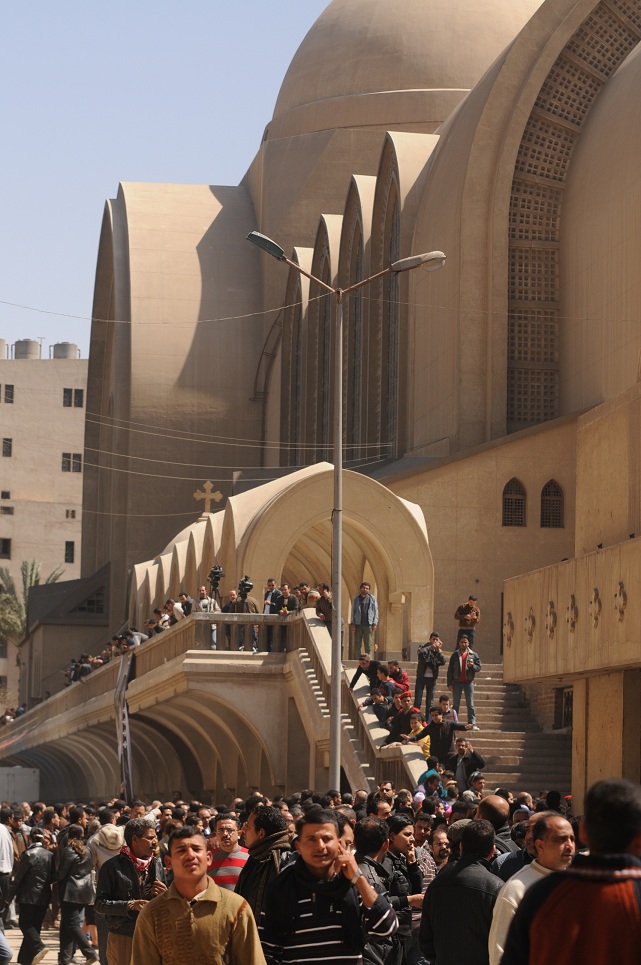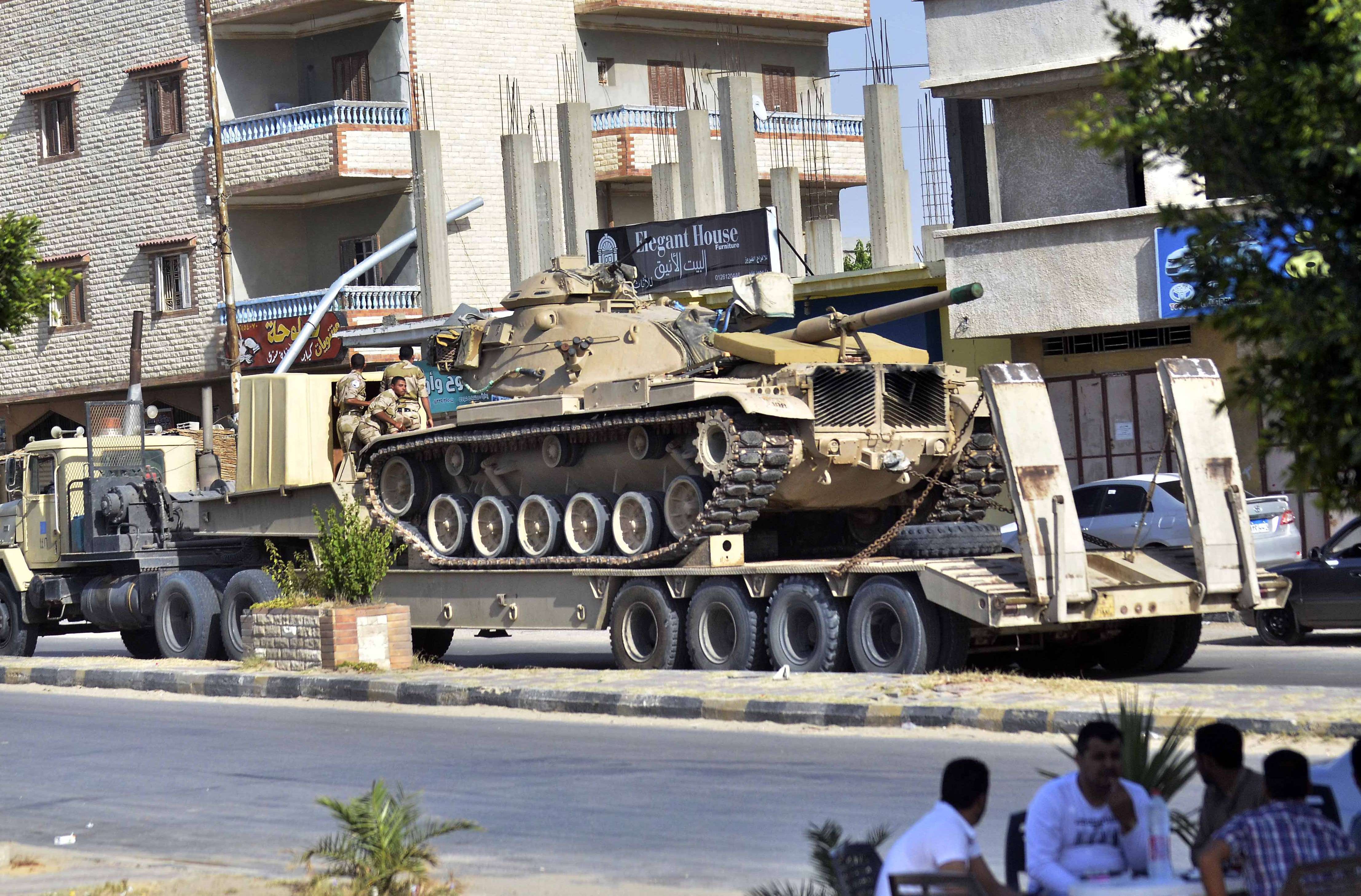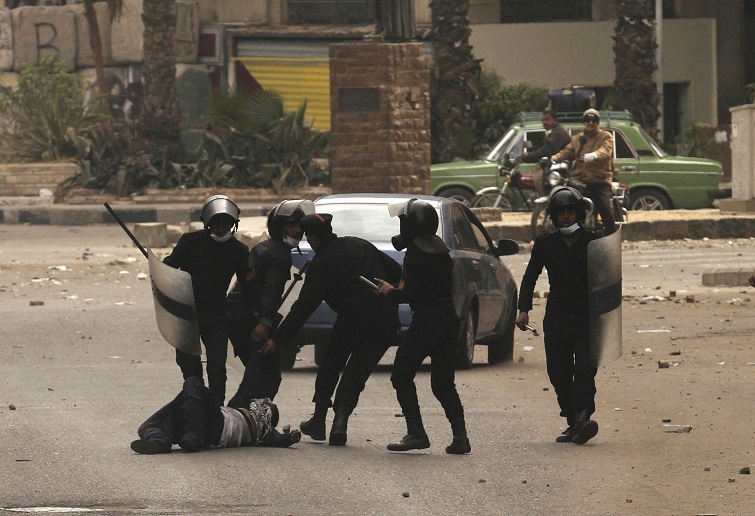NEAR AJDABIYA: Mohamed’s mother thinks he is somewhere in Alexandria, on Egypt’s northern coast, which is where he told her he was going when he left Cairo to join rebels fighting the Libyan government.
"I told her I’m going towards Alexandria, which is true, but I just continued on after that. So I didn’t lie to her," he says with a wry grin on his face, which is wrapped in a graying scarf that covers a skullcap.
Mohamed, who declines to give his name and says he is in his thirties, arrived in Libya three days ago, crossing the border by convincing Egyptian officials he was a media translator.
In fact, he has come to Libya to fight, to find the revolutionary spirit he felt in Cairo’s Tahrir Square during Egypt’s uprising against former president Hosni Mubarak — a spirit he says was lost in the days after Mubarak resigned.
"Everything should have been revolutionized," he said accusing the Egyptian army of stifling the vast overhaul that he had hoped for.
Disappointed, and perhaps a little bored by the grind of state-building after the euphoria of revolution, Mohamed decided to come to Libya, arriving in Benghazi with only a few contacts.
He eventually joined up with a group of young Libyans holding a position about 15 kilometers north of Ajdabiya, a city besieged and partly taken by forces loyal to Libyan leader Moamer Qaddafi, which rebels hope to recapture.
"The military camps refused to accept me because I’m not Libyan. But the youth, they know we are one, they know we are brothers, they know we are here for jihad."
Mohamed, wearing a heavy coat over a sweater and jeans rolled up at the ankle, was still waiting to get a weapon, and to see whether he could work out how to use it.
"I know theoretically how to use a gun. I have read some books, I’ve seen some videos on YouTube," he said.
Years earlier, Mohamed had tried to find his way to Iraq, giving up, he said, when he discovered how difficult it would be to get there.
But this fight was much closer, and felt as important as the battle against the US-led invasion of Iraq, he said.
"It’s a jihad because it’s sacred, because it’s for rights, we’re fighting thieves, killers, traitors," he said.
"If we have victory here, we can go elsewhere, we can free Algeria, we can get south Sudan back. It can be one big country, how it used to be before the European occupation."
His ideas about the best government for the Arab world are vague. He proposes a confederation perhaps, "like the United States," but isn’t sure what sort of leadership would be best.
"It’s not about Egyptians or Libyans, it’s one Arab nation… The borders were put by European countries," he says.
And he declines to identify himself as an Islamist, or a Salafist, or a liberal, saying all those descriptions are too narrow.
"Islam takes the good parts from everything, something from the liberal, even from capitalism, like private ownership, it is broader than other labels."
Around him, young Libyans sit smoking cigarettes, their weapons too light to take on the government tanks arrayed around Ajdabiya, barely visible in the distance.
Their best hope is coalition air strikes, led by the United States, France and Britain, which have been welcomed enthusiastically by most of the Libyan opposition.
But Mohamed said he could not trust countries involved in the air strikes, accusing them of seeking nothing more than to "stake their claim" to Libya’s oil resources.
Libya is Mohamed’s first foreign trip; his first time outside of Egypt. It is the first time he has slept in the desert and, having managed to avoid military service at home, his first time around weapons and war.
"I’m afraid, but I’m not scared. If I were scared I wouldn’t be here, but to be afraid is to be cautious," he said.
"I came here to be with them, to be a revolutionary."


